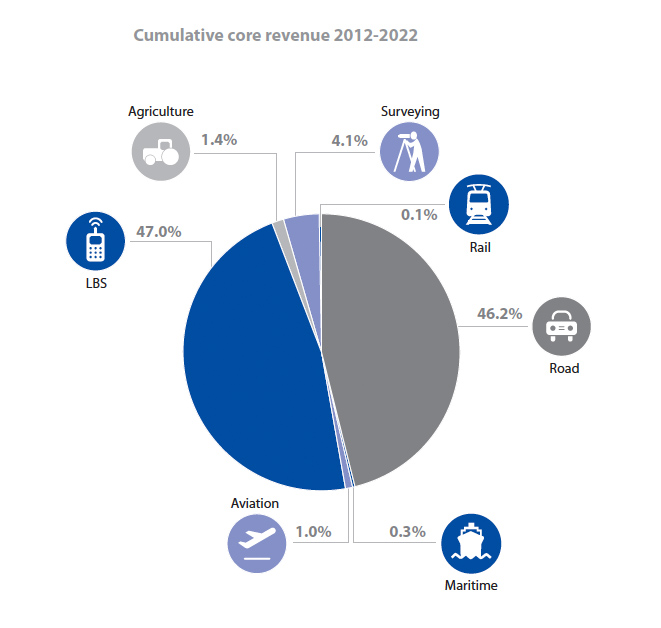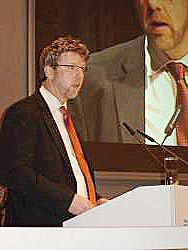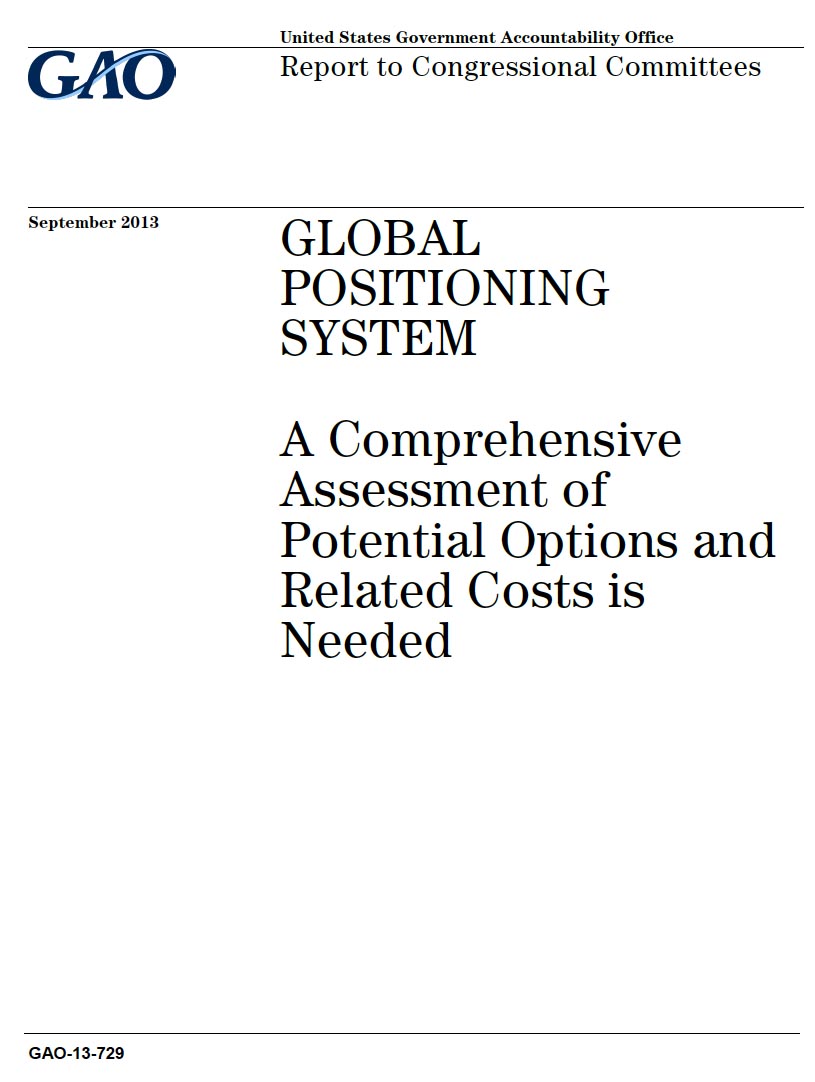Comments submitted to the Office of the U.S. Trade Representative (USTR) suggest that the Galileo program is finally nearing a decision on commercial use of specifications for its Open Service (OS), but U.S. officials remain concerned that this nation’s equipment manufacturers not be placed at a competitive disadvantage. Meanwhile, Galileo simulators appear to finally be reaching receiver manufacturers, despite the absence of official approval.
Comments submitted to the Office of the U.S. Trade Representative (USTR) suggest that the Galileo program is finally nearing a decision on commercial use of specifications for its Open Service (OS), but U.S. officials remain concerned that this nation’s equipment manufacturers not be placed at a competitive disadvantage. Meanwhile, Galileo simulators appear to finally be reaching receiver manufacturers, despite the absence of official approval.
The information emerged in the course of a public comment process that resulted in a July 15 report to Congress — drafted by the USTR with the assistance of the U.S. Commerce Department’s Office of Space Commercialization — regarding the status of U.S. equipment industry access to the European Community’s GNSS program. Congress had requested the investigation in approving the Omnibus Appropriations Act of 2009.
At issue is a draft Galileo OS Signal-in-Space Interface Control Document (OS-SIS-ICD) published in May 2006 and intended to support development of Galileo-capable receivers and simulators. A related issue is U.S. industry participation in the competitive procurement process now under way for the Galileo full operational capability (FOC) space and ground infrastructure.
The draft ICD is available for information, standardization, and R&D purposes, but it prohibits the commercial use of the data “until a specific authorization is provided by the publishing authority and/or holder of the association intellectual property rights [IPR],” according to comments submitted to the USTR by the European Commission (EC) Directorate-General for Energy and Transport (DG-TREN). The European Space Agency (ESA) and the GNSS Supervisory Authority (GSA, recently renamed the GNSS Agency in an EC communication) own the Galileo ICDs and IPR.
In effect, as the USTR congressional report points our, “This means that a company may use the ICD to develop products and services but cannot sell them until it obtains a license. Furthermore, companies are prohibited from registering or protecting IPR they derive from the ICD without a license from the EC.”
Sources have told Inside GNSS that the EC reportedly distributed a new position paper to the European Community member states last week that proposes to transfer all Galileo OS IPR from ESA and GSA to the EC In turn, the commission would then distribute the ICD free of charge to the world but maintain a licensing process — basically a registration system.
According to a statement on the GSA website, “the planned timeline for the Galileo SIS ICD updates, and the associated publication plan (including Service ICDs), will be provided by early 2009.” The EC’s current timeline for resolving the OS IPR issues now appears to be by the end of this year.
Only two organizations — the EC and the U.S. GPS Industry Council (USGIC) — responded to the April 15 Federal Register notice inviting comments on six questions regarding U.S. equipment manufacturers’ ability to participate in Europe’s GNSS program. The invitation specifically identified three sections — Articles 5, 6, and 8 — of the 2004 Agreement on the Promotion, Provision and Use of Galileo and GPS Satellite-Based Navigation Systems and Related Applications between the European Community (EC) and the United States.
The GPS-Galileo agreement includes provisions that call for a “non-discriminatory approach” with respect to trade in civil satellite navigation and timing-related goods and services, including unrestricted access to GPS and Galileo open service signals and equal access to the information necessary to develop user equipment for commercial purposes. The GPS-Galileo Agreement establishes several bilateral working groups, including a working group on trade and civil applications (“Working Group B”) that addresses the commercialization/competitiveness issues specifically.
Although the USTR request for comment focused primarily on Galileo user equipment and simulators, competitive access of U.S. industry to the Galileo system development also has raised concern. In its comments, the EC noted that U.S. companies are among the suppliers for R&D activities underway during the Galileo in-orbit validation (IOV) phase and “during the procurement of the . . . FOC, we also anticipate possible US suppliers in the supply chains.”
Galileo Simulators: Selling Quietly
On the subject of allowing manufacturers of GNSS simulators developed under the Galileo R&D program to sell equipment to receiver manufacturers, in comments to the USTR, the EC said that “[d]ecisions relative to this area are close to adoption. . . .”
Simulators replicate the signals (including frequency bands and modulation schemes) used by the Galileo satellites, allowing receiver designers to test and validate their equipment. The status of simulator sales is important because is typically takes a GNSS equipment manufacturer 18 to 24 months to develop new, market-ready user equipment.
As the report to Congress states, “The United States first raised the Galileo signal simulator issue during the July 2008 meeting of Working Group B. Upon a request by the EC delegation for more information, the U.S. co-chair sent the EC a letter in August 2008 proposing that, to accelerate worldwide development and acceptance of Galileo user equipment, the EC authorize immediate commercial sales of Galileo Open Service signal simulators. While initial discussions of the proposal were positive, the EC has not provided a formal response to the U.S. proposal.”
In fact, it appears that Galileo-capable simulators have quietly been reaching the market in recent months without benefit of any official authorization.
“We are very pleased to inform you that . . . our member companies have reported that the European manufacturers of GNSS test simulators now are exporting their product with the Galileo Open Service (“OS”) signal capability,” Mike Swiek, USGIC executive secretary, wrote to the USTR. “Member companies also have reported that they have received the Galileo OS signal component for their test simulators.
“This is most welcome progress,” Swiek continued, “and we appreciate the efforts of the European Commission . . . and Galileo authorities to make available access to this essential GNSS test simulation technology. At this time, however, we are unable to locate an official EC statement authorizing the export of fully functional Galileo test simulators.”
According to the USTR, U.S. industry also faces challenges in obtaining information necessary to develop equipment for the other services provided by Galileo: the safety-of-life service, the public regulated service (PRS), and the commercial service (CS). These signals are expected to be functional on the four IOV satellites planned for launch in late 2010/early 2011.
In his comments, Swiek expressed the industry council’s particular concern about “the outstanding need to complete the functionality of these test simulators by adding the capability to test the unpublished Galileo commercially encrypted E6 signal.”
Noting that ESA subcontractors and members of the Galileo consortia have access to the Galileo signals and test simulation to build Galileo receivers to support the development of the Galileo system, Swiek added, “If the EC grants a commercial license to all other user equipment manufacturers at the same time, including the Galileo GNSS simulator manufacturers, this will not provide fair and equivalent access to the commercially encrypted E6 signal to allow user equipment manufacturers to develop and test Galileo products having the same Galileo capability for market introduction in the same timeframe.”
The EC in its comments acknowledged that development of the relevant technical specifications for these other services has lagged behind that of the open service, but reiterated its intention to make such information accessible to manufacturers on a non-discriminatory basis once it is available.
USTR told Congress that, in cooperation with other U.S. agencies, the office will continue to monitor the manner in which the EC releases information for the open service and other Galileo signals “to ensure that U.S. equipment manufacturers are not placed at a competitive disadvantage vis-à-vis European and other equipment manufacturers.” It will also encourage more frequent meetings of Working Group B, “recognizing that it is the primary venue for bilateral discussions on trade and civil applications related to GPS and Galileo.”
With the scheduled launch of the first operational Galileo satellites potentially less than 18 months away, the USTR report concludes, “it is critical that the EC ensures that all parties have equal access to information necessary to design and build Galileo compatible equipment.”





